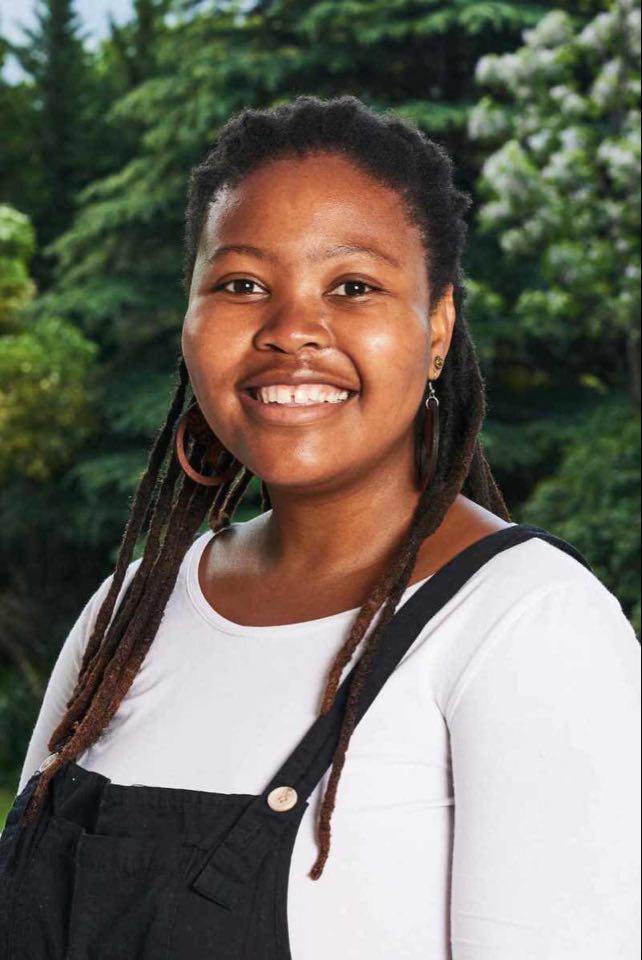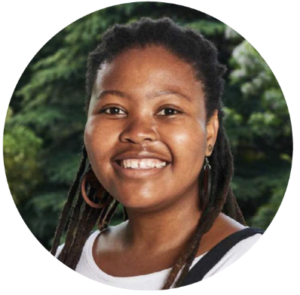
 Sacred Heart College Class of 2016 Alumna Masego Mafata has been granted a hugely prestigious Mandela Rhodes Foundation Scholarship. Here, she recalls the application process, and credits her support systems with contributing to her success.
Sacred Heart College Class of 2016 Alumna Masego Mafata has been granted a hugely prestigious Mandela Rhodes Foundation Scholarship. Here, she recalls the application process, and credits her support systems with contributing to her success.
What she’s studying right now:
“I’m doing my Honours in journalism at the moment. I’m hoping to take a break from school next year and to hopefully find a job that allows me to combine advocacy journalism and arts journalism.”
On her schooling at SHC:
“Being schooled at SHC did help me get to where I am today. From early on in my school career, I was one of the ‘lucky’ students who were chosen for opportunities that were available to a limited number of students. Schools tend to offer these opportunities to the same group of students, and I also benefitted from this system. Even though I benefited from this, I think it’s important for the pool of students who are selected for the opportunities to be further diversified. “In addition to this, I was surrounded by teachers, peers and other staff members who provided the support and encouragement that allowed me to develop a ‘go-getter’ spirit. I appreciate how accessible people like Mrs Blanckensee were. I remember having many meetings with her, where she would listen to my thoughts and ideas and she would provide meaningful feedback. She would also help where she can with the execution of these ideas. “Lastly, I can’t emphasize how much being part of the melting pot that is SHC has influenced how I live my life now. Being exposed to and encouraged to embrace difference (in terms of the people I am surrounded by, difference within the curriculum and with the activities that I do) has cultivated a sense of constantly wanting to learn about the world and the people around me.”
The scholarship:
“The scholarship is for postgraduate studies (except MBChB) at any South African university. It pays for your tuition, accommodation, textbook and personal allowances for the duration of your degree/programme of study. You also attend three workshops and three pod sessions with themes ranging from leadership, reconciliation and entrepreneurship. It is so much more than a financial assistance programme. Your year in residency is the year in which the pay for all of these things, so since my year in residency is 2020 and my degree is a one-year programme, the Foundation will be paying for my studies for this year only.”
On support:
“Honestly, applying for this scholarship felt like a shot in the dark for me – I did not think that my application would be successful, given the calibre of people who apply for this scholarship. However, I am surrounded by the most affirming people. It is through their support that I found the courage to apply for this scholarship. Because of this, receiving this scholarship symbolised, in a lot of ways, paying homage to the incredible support system that I have.
On imposter syndrome:
“When I catch myself questioning how it came to be that I was selected as an MRF scholar, I remind myself that I’m selling myself short by wallowing in a limiting sense of self-doubt. Instead, I should embrace this opportunity in its entirety; I owe that to myself and to everyone who is rooting for me. Engaging with other MRF scholars has also helped me navigate this. This is because I have seen that even with their incredible bios and achievements, they also experience imposter syndrome in some way. It has been reassuring to learn that even the most successful people have to grapple with and overcome similar feelings of anxiety and self-doubt.
On what comes next:
“Meeting fellow MRF scholars has increased my desire to further explore the African continent and to engage with lived experiences outside of the ones that I am usually exposed to. For a long time, I have been grappling with the guilt of being a South African in the context of rampant Afrophobia and anti-Africa sentiments expressed by other South Africans. I’m hoping to constructively channel my frustration and guilt in a way that allows me to contribute to solving this complex problem of prejudice and violence (both physical and systemic), through avenues such as advocacy journalism and other, more ‘on-the-ground’ projects.
On paying it forward:
“It is an incredible honour to be part of such a prestigious programme. Moreover, it is so stimulating to be among some of the greatest minds on the African continent. I have realised that along with this honour comes a greater responsibility for MRF scholars to use this opportunity to open up the spaces we occupy, broaden the representation and grow the conversation.”

